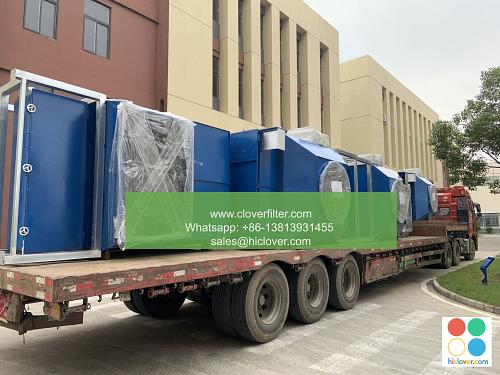Maximizing Airflow with the Right Air Filter Design

Maximizing Airflow with the Right Air Filter Design
Airflow is a crucial aspect of various industries, including HVAC, industrial processes, and even consumer products. The right air filter design can significantly impact the efficiency, cost, and performance of these systems. In this article, we will explore the importance of maximizing airflow with the right air filter design and highlight various application areas.
The Importance of Airflow
Airflow is the movement of air through a system, and it is essential for maintaining proper airflow. Proper airflow ensures that air is circulated, cooled, or heated efficiently, which is critical for various applications, including:
- HVAC systems: Adequate airflow is necessary for heating, ventilation, and air conditioning systems to function effectively.
- Industrial processes: Proper airflow is required for industrial processes, such as manufacturing, mining, and construction, to maintain a safe and healthy environment.
- Consumer products: Airflow is vital for consumer products, such as air purifiers, respirators, and vacuum cleaners, to function efficiently.
Challenges in Airflow
However, airflow can face several challenges, including:
- Obstruction: Obstructions, such as dirt, debris, and dust, can reduce airflow and impede the efficiency of air filters.
- Air stagnation: Poor design and installation of air filters can lead to air stagnation, which can cause damage to equipment and reduce overall performance.
Optimizing Airflow with the Right Air Filter Design
To overcome these challenges, the right air filter design is crucial. Here are some key considerations for maximizing airflow:
- Filter Selection: Choose the right filter for the application, taking into account factors such as flow rate, pressure drop, and filter size.
- Filter Construction: Opt for a filter with the right material, such as fiberglass, polyester, or activated carbon, for the specific application.
- Filter Optimization: Use filters with intelligent design features, such as optimized airflow paths and adjustable air resistance, to enhance airflow.
Application Areas
The right air filter design is crucial in various application areas, including:
- HVAC systems: Proper airflow is necessary for maintaining indoor air quality, reducing energy consumption, and extending equipment lifespan.
- Industrial processes: Air filters can help reduce downtime, improve worker safety, and increase productivity in industrial environments.
- Consumer products: Air filters can improve the performance of air purifiers, vacuum cleaners, and respirators, while reducing maintenance and improving user satisfaction.
Conclusion
In conclusion, maximizing airflow is crucial for various applications, and the right air filter design is essential for achieving this goal. By choosing the right filter for the application, selecting the right material, and optimizing filter design, businesses and individuals can reduce energy consumption, improve performance, and ensure a healthy and safe environment.
I’m happy to help! However, it seems like you didn’t provide a prompt for me to work with. Would you like to provide a specific topic, question, or task for me to assist you with? I’m here to help!


